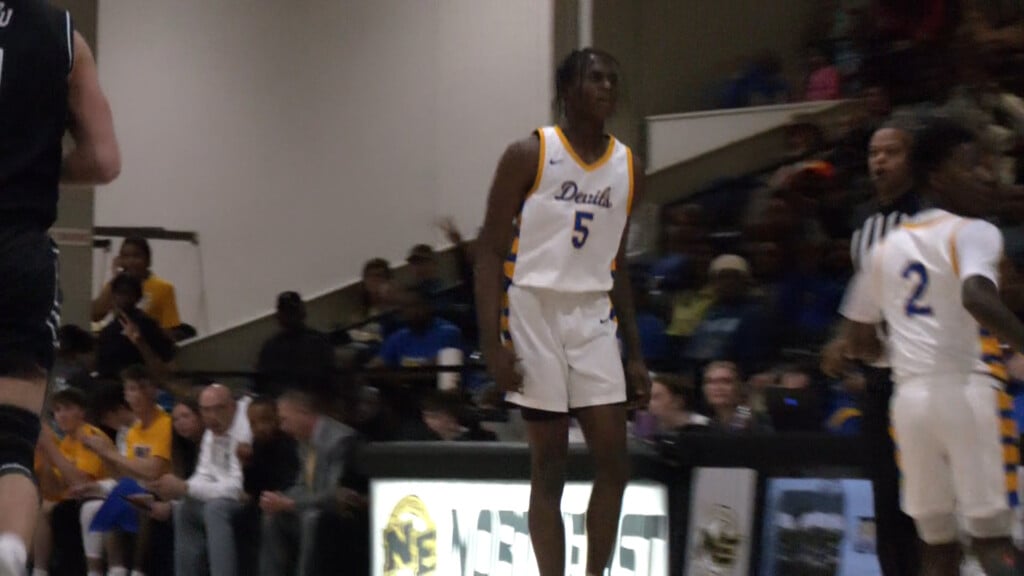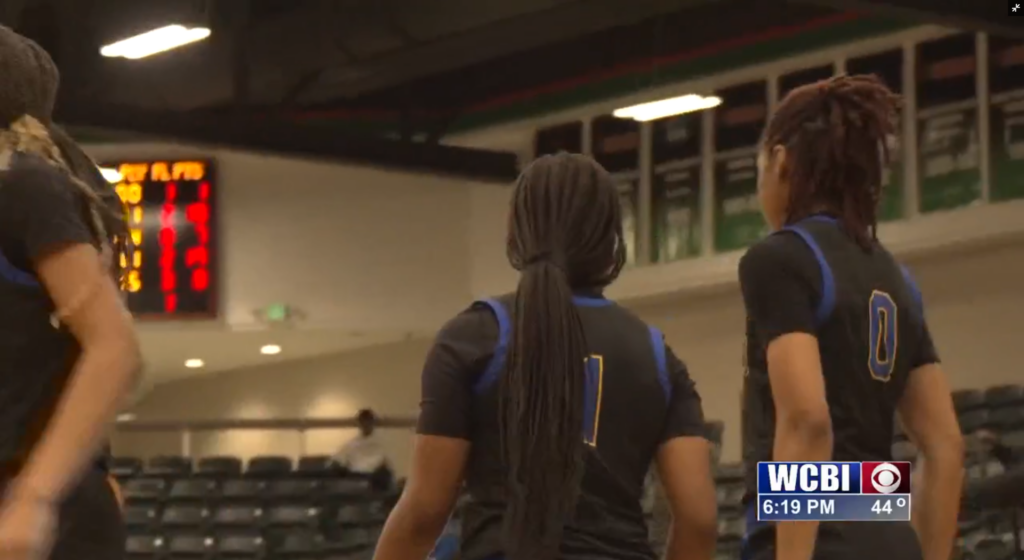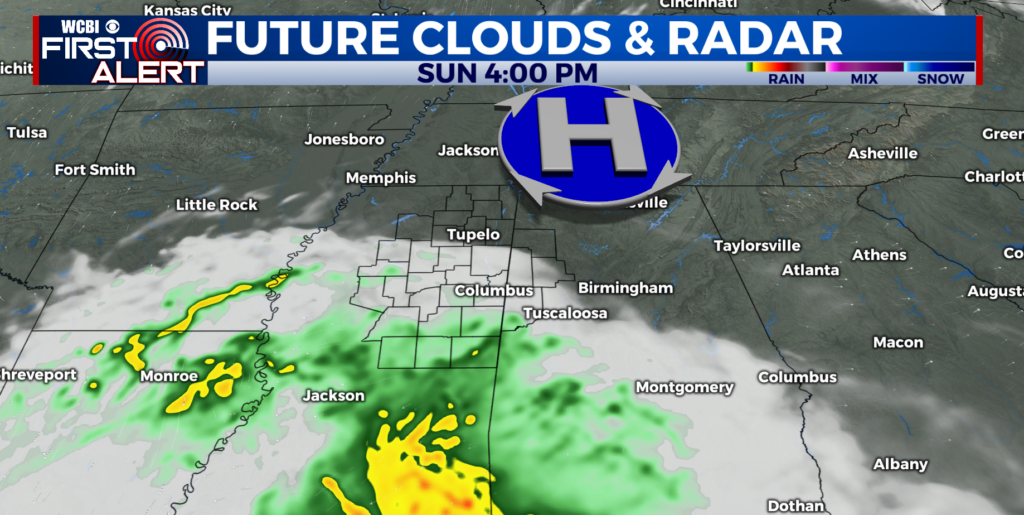AG Says Arrests Possible in Instagram Cases
JACKSON, Miss. — Attorney General Jim Hood is seeking ways to stop a disturbing trend of inappropriate internet postings on the popular social networking site Instagram.
The Attorney General’s office has recently received numerous complaints of false Instagram accounts being created specifically to post inappropriate pictures of local young girls with the purpose of making derogatory comments about them. Many times, the postings will even name the school where those being “talked about” attend.
“We are investigating a trend of these postings about girls, primarily in central Mississippi,” said Attorney General Hood. “This is different from the old high school slam book days where worst case the whole school saw what was written. This electronic slamming escalates it to a whole new level, and one the world can see. This is more than a foolish prank, and I hope Mississippians will join me in talking to our children and our teenagers about the long term implications of such actions.”
Attorney General Hood continued, “Investigators in the Cyber Crime Unit have already identified many of the male students responsible for the postings. Although many of these cases will be handled in youth court, we are sending in Cyber Crime Unit investigators and attorneys into the schools with students involved in the postings to discuss these complaints directly with teachers, administrators and counselors. We will develop an educational campaign for students and parents to try to prevent this activity in the future.”
Attorney General Hood concluded, “It depends upon the language contained in the postings as to which criminal law these type postings may violate. We are reviewing these postings and consulting with youth court prosecutors and judges to see if we need legislative changes.”
Potential violations of state law with inappropriate postings:
Miss. Code Ann. § 97-45-17 (2013)
§ 97-45-17. Posting of messages through electronic media for purpose of causing injury to any person
(1) A person shall not post a message for the purpose of causing injury to any person through the use of any medium of communication, including the Internet or a computer, computer program, computer system or computer network, or other electronic medium of communication without the victim’s consent, for the purpose of causing injury to any person.
(2) A person who violates this section, upon conviction, shall be guilty of a felony punishable by imprisonment for not more than five (5) years or a fine of not more than Ten Thousand Dollars ($ 10,000.00), or both.
HISTORY: SOURCES: Laws, 2003, ch. 562, § 7, eff from and after July 1, 2003.
Miss. Code Ann. § 37-11-20 (2013)
§ 37-11-20. Intimidation, threatening or coercion of students for purpose of interfering with attendance of classes
It shall be unlawful for any person to intimidate, threaten or coerce, or attempt to intimidate, threaten or coerce, whether by illegal force, threats of force or by the distribution of intimidating, threatening or coercive material, any person enrolled in any school for the purpose of interfering with the right of that person to attend school classes or of causing him not to attend such classes.
Upon conviction of violation of any provision of this section, such individual shall be guilty of a misdemeanor and shall be subject to a fine of not to exceed Five Hundred Dollars ($ 500.00), imprisonment in jail for a period not to exceed six (6) months, or both. Any person under the age of seventeen (17) years who violates any provision of this section shall be treated as a delinquent within the jurisdiction of the youth court.
HISTORY: SOURCES: Codes, 1942, § 6216-05.5; Laws, 1972, ch. 383, §§ 1, 2, eff from and after passage (approved April 26, 1972).
Miss. Code Ann. § 37-11-67 (2013)
§ 37-11-67. Bullying or harassing behavior in public schools prohibited
(1) As used in this section and Section 37-11-69, “bullying or harassing behavior” is any pattern of gestures or written, electronic or verbal communications, or any physical act or any threatening communication, or any act reasonably perceived as being motivated by any actual or perceived differentiating characteristic, that takes place on school property, at any school-sponsored function, or on a school bus, and that:
(a) Places a student or school employee in actual and reasonable fear of harm to his or her person or damage to his or her property; or
(b) Creates or is certain to create a hostile environment by substantially interfering with or impairing a student’s educational performance, opportunities or benefits. For purposes of this section, “hostile environment” means that the victim subjectively views the conduct as bullying or harassing behavior and the conduct is objectively severe or pervasive enough that a reasonable person would agree that it is bullying or harassing behavior.
(2) No student or school employee shall be subjected to bullying or harassing behavior by school employees or students.
(3) No person shall engage in any act of reprisal or retaliation against a victim, witness or a person with reliable information about an act of bullying or harassing behavior.
(4) A school employee who has witnessed or has reliable information that a student or school employee has been subject to any act of bullying or harassing behavior shall report the incident to the appropriate school official.
(5) A student or volunteer who has witnessed or has reliable information that a student or school employee has been subject to any act of bullying or harassing behavior should report the incident to the appropriate school official.
HISTORY: SOURCES: Laws, 2010, ch. 508, § 1, eff from and after July 1, 2010.
Miss. Code Ann. § 97-45-15 (2013)
§ 97-45-15. “Cyberstalking”;
(1) It is unlawful for a person to:
(a) Use in electronic mail or electronic communication any words or language threatening to inflict bodily harm to any person or to that person’s child, sibling, spouse or dependent, or physical injury to the property of any person, or for the purpose of extorting money or other things of value from any person.
(b) Electronically mail or electronically communicate to another repeatedly, whether or not conversation ensues, for the purpose of threatening, terrifying or harassing any person.
(c) Electronically mail or electronically communicate to another and to knowingly make any false statement concerning death, injury, illness, disfigurement, indecent conduct, or criminal conduct of the person electronically mailed or of any member of the person’s family or household with the intent to threaten, terrify or harass.
(d) Knowingly permit an electronic communication device under the person’s control to be used for any purpose prohibited by this section.
(2) Whoever commits the offense of cyberstalking shall be punished, upon conviction:
(a) Except as provided herein, the person is guilty of a felony punishable by imprisonment for not more than two (2) years or a fine of not more than Five Thousand Dollars ($ 5,000.00), or both.
(b) If any of the following apply, the person is guilty of a felony punishable by imprisonment for not more than five (5) years or a fine of not more than Ten Thousand Dollars ($ 10,000.00), or both:
(i) The offense is in violation of a restraining order and the person has received actual notice of that restraining order or posting the message is in violation of an injunction or preliminary injunction.
(ii) The offense is in violation of a condition of probation, a condition of parole, a condition of pretrial release or a condition of release on bond pending appeal.
(iii) The offense results in a credible threat being communicated to the victim, a member of the victim’s family, or another individual living in the same household as the victim.
(iv) The person has been previously convicted of violating this section or a substantially similar law of another state, a political subdivision of another state, or of the United States.
(3) This section does not apply to any peaceable, nonviolent, or nonthreatening activity intended to express political views or to provide lawful information to others. This section shall not be construed to impair any constitutionally protected activity, including speech, protest or assembly.
HISTORY: SOURCES: Laws, 2003, ch. 562, § 6, eff from and after July 1, 2003.
Miss. Code Ann. § 97-29-45 (2013)
§ 97-29-45. Obscene electronic communications
(1) It shall be unlawful for any person or persons:
(a) To make any comment, request, suggestion or proposal by means of telecommunication or electronic communication which is obscene, lewd or lascivious with intent to abuse, threaten or harass any party to a telephone conversation, telecommunication or electronic communication;
(b) To make a telecommunication or electronic communication with intent to terrify, intimidate or harass, and threaten to inflict injury or physical harm to any person or to his property;
(c) To make a telephone call, whether or not conversation ensues, without disclosing his identity and with intent to annoy, abuse, threaten or harass any person at the called number;
(d) To make or cause the telephone of another repeatedly or continuously to ring, with intent to harass any person at the called number;
(e) To make repeated telephone calls, during which conversation ensues, solely to harass any person at the called number; or
(f) Knowingly to permit a computer or a telephone of any type under his control to be used for any purpose prohibited by this section.
(2) Upon conviction of any person for the first offense of violating subsection (1) of this section, such person shall be fined not more than Five Hundred Dollars ($ 500.00) or imprisoned in the county jail for not more than six (6) months, or both.
(3) Upon conviction of any person for the second offense of violating subsection (1) of this section, the offenses being committed within a period of five (5) years, such person shall be fined not more than One Thousand Dollars ($ 1,000.00) or imprisoned in the county jail for not more than one (1) year, or both.
(4) For any third or subsequent conviction of any person violating subsection (1) of this section, the offenses being committed within a period of five (5) years, such person shall be guilty of a felony and fined not more than Two Thousand Dollars ($ 2,000.00) and/or imprisoned in the State Penitentiary for not more than two (2) years, or both.
(5) The provisions of this section do not apply to a person or persons who make a telephone call that would be covered by the provisions of the federal Fair Debt Collection Practices Act, 15 USCS Section 1692 et seq.
(6) Any person violating this section may be prosecuted in the county where the telephone call, conversation or language originates in case such call, conversation or language originates in the State of Mississippi. In case the call, conversation or language originates outside of the State of Mississippi then such person shall be prosecuted in the county to which it is transmitted.
(7) For the purposes of this section, telecommunication and electronic communication mean and include any type of telephonic, electronic or radio communications, or transmission of signs, signals, data, writings, images and sounds or intelligence of any nature by telephone, including cellular telephones, wire, cable, radio, electromagnetic, photoelectronic or photo-optical system or the creation, display, management, storage, processing, transmission or distribution of images, text, voice, video or data by wire, cable or wireless means, including the Internet.
(8) No person shall be held to have violated this section solely for providing access or connection to telecommunications or electronic communications services where the services do not include the creation of the content of the communication. Companies organized to do business as commercial broadcast radio stations, television stations, telecommunications service providers, Internet service providers, cable service providers or news organizations shall not be criminally liable under this section.
HISTORY: SOURCES: Codes, 1942, § 2291.5; Laws, 1956, ch. 261; Laws, 1964, ch. 351, § 1; Laws, 1982, ch. 385; Laws, 2001, ch. 468, § 1; Laws, 2002, ch. 503, § 1, eff from and after July 1, 2002.





Leave a Reply